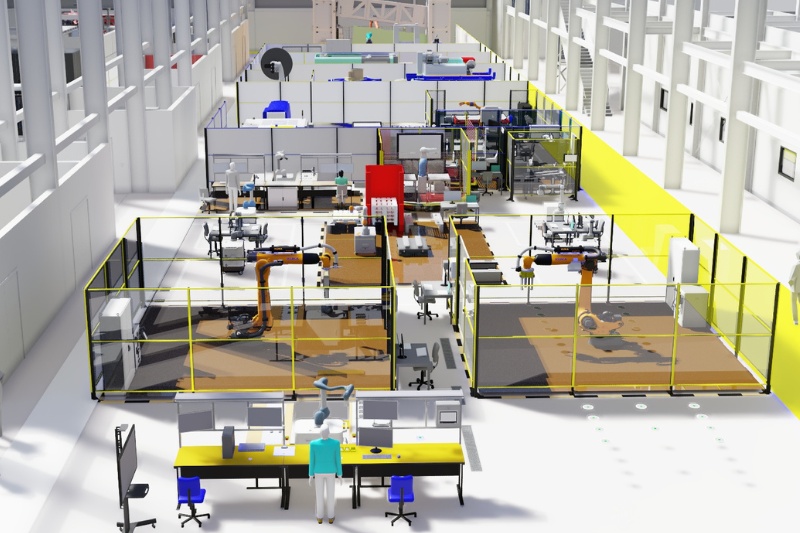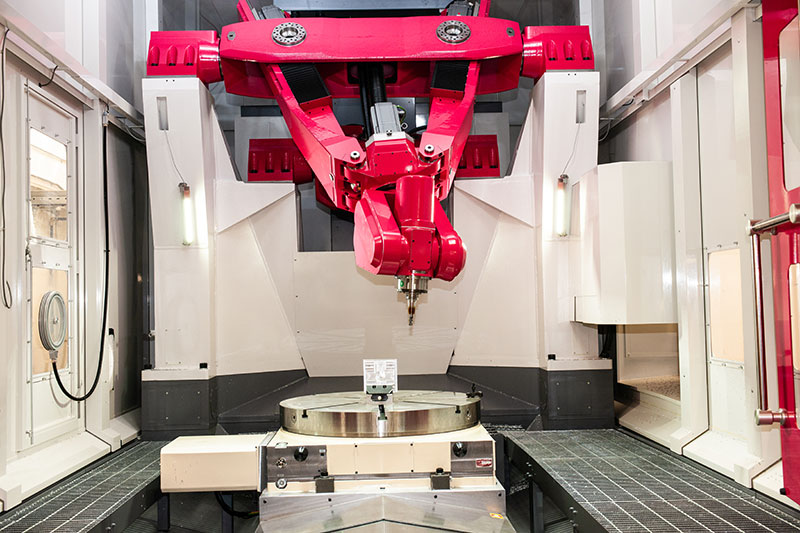Digital Factory brings together state-of-the-art facilities and a range of capabilities in manufacturing processes such as machining, automation, fabrication, assembly, and metrology, underpinning them with a data-centric approach to process control and optimisation for cost, quality, and carbon.
Combining the existing process knowledge and digital skills of the NITC and integrating with data science and cyber security research, the Digital Factory group aims to bring a disruptive approach to manufacturing problem-solving, using digital tools and skills to address manufacturing challenges and feed into the design phase.
The Digital Factory team draws on key research strengths in Queen's University Belfast and Ulster University, working closely with collaborators to provide a UK and Ireland leading capability on cyber-secure manufacturing in an increasingly digitally connected value stream.

DIGITAL TRANSFORMATION
Adopting digital engineering approaches creates more competitive and profitable businesses by unlocking new efficiencies in manufacturing processes, shortening development cycles, and improving product quality. At AMIC, we can help you navigate this complex world by supporting your digital transformation and enabling you to grasp opportunities and reap the commercial and financial rewards.
The pressure is on to embrace digital transformation and use digital technology to power innovation, agility and growth. At AMIC, we work with engineering and manufacturing companies and digital technology providers to develop advanced digital solutions that cut costs, enhance productivity, reduce time-to-market, and create more sustainable products.
Our capabilities include simulation, IoT & connectivity, AI&Ml, cyber security, data visualisation, and dashboards.

STATE-OF-THE-ART FACILITIES
We collaborate with leading businesses and technology and engineering companies to spark new ideas and innovation. Using our state-of-the-art facilities, we can test early-stage technologies, validate engineering transformation concepts, and identify efficiencies in product, process and technology development.
Put simply, we help to demystify and de-risk potential investment and, in the process, accelerate sustainable product innovation and engineering leadership.
APPROACHES INCLUDE:
- Process modelling – improving manufacturing precision and efficiency through process simulation.
- Multi-level assembly system modelling – capturing manufacture and assembly processes from individual parts through to full factory simulations.
- Digital twinning – a digital or virtual twin of a physical entity that’s faithful in all relevant aspects and allows near real-time data flow between physical and digital entities.